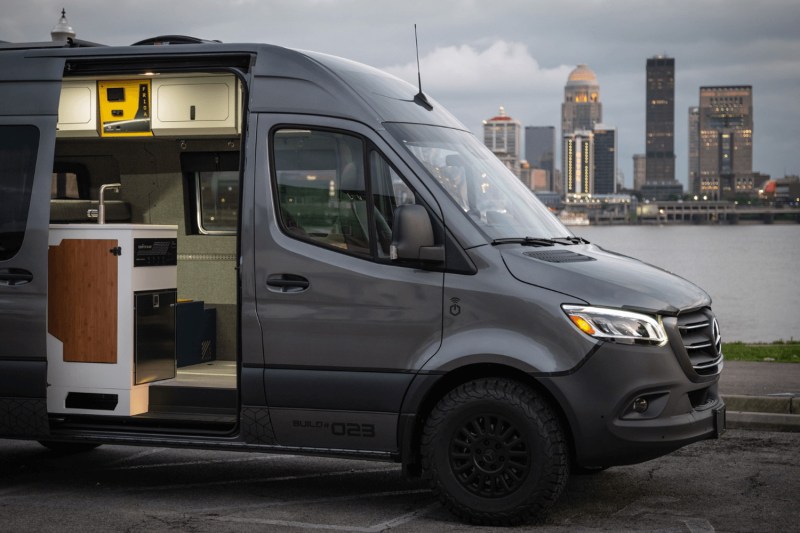
Camper vans have come a long (long) way since the OG models your parents and their parents grew up with. Many of today’s rigs are built not just for living on the road but for living and working in style — some offer premium features that rival most modern studio apartments. Case in point: Remote Vans. The company’s latest three camper van models are designed for modern digital nomads with enough amenities to make you at least consider trading in your house keys for a life on the road.
Get the details on Remote Vans’ three camper van models

Each of the three camper van models — Friday, Oasis, and Aegis—is born from a stock Mercedes-Benz Sprinter van. Straight off the production line, it’s arguably the most capable and tech-forward platform on the market, designed for easy living on the road. But Remote Vans goes well beyond the stock platform, customizing each of the three models to within an inch of its life.
On the inside, every model is outfitted with all the comforts of home. The Queen Bascule Bed system and Vanhalla Sleeper Seat provide plenty of space for relaxing by day and snoozing at night. The decked-out galley features a stainless steel sink and premium appliances, including a 700W microwave, a 65-liter fridge/freezer, and a portable 1,800W induction cooktop. Scratchproof Italian composite and a solid surface countertop provide a durable place to prep meals on the go. The full-featured bathroom setup includes separate fresh and gray water tanks and a recirculating indoor shower with plenty of hot water so you can actually keep clean on the go (a rare luxury for van lifers). The best part? Starlink Internet is standard on every model.

Remote Vans’ MoPoWa System is what really separates these three models from almost every other camper van on the road. At its core is a 51V Lithionics Neverdie Power System with 16.8kWh of battery storage and a built-in reserve. A massive 3,000W inverter (with a 5,500W boost) keeps every power outlet and appliance humming, including the onboard air conditioner and water heater. It’s all topped up by a 190W solar panel designed to keep you going almost indefinitely while on the go. Bonus: There’s a 30-amp shore power inlet for lightning-fast power-ups at camp.

Every model is well-equipped inside and out. But what separates the entry-level Friday from its “bigger” brothers is a long list of off-road-centric features. The Oasis adds an LED lightbar, a fender armor kit, a 45-gallon long-range fuel tank, and an onboard air compressor, among many other things. The top-of-the-line Aegis has all of the above, plus additional overlanding-friendly amenities, like a beefier suspension kit, skid plates, expedition-worthy storage, and high-powered LED grill lights.
Spec and shop your own Remote Vans camper van

The base-level Friday camper van starts at just over $200,000. While that price tag seems steep, even this “value” model comes well-equipped with enough features to satisfy all but the most hardcore off-road-loving nomads. Upgrading to the Oasis costs $238,500, and the flagship Aegis runs just north of $250,000. Bottom line: They certainly aren’t “cheap.” But when you consider that 20-year financing options are available, you could easily trade living in a traditional home for life on the road and maybe even save a bit of money in the process.



